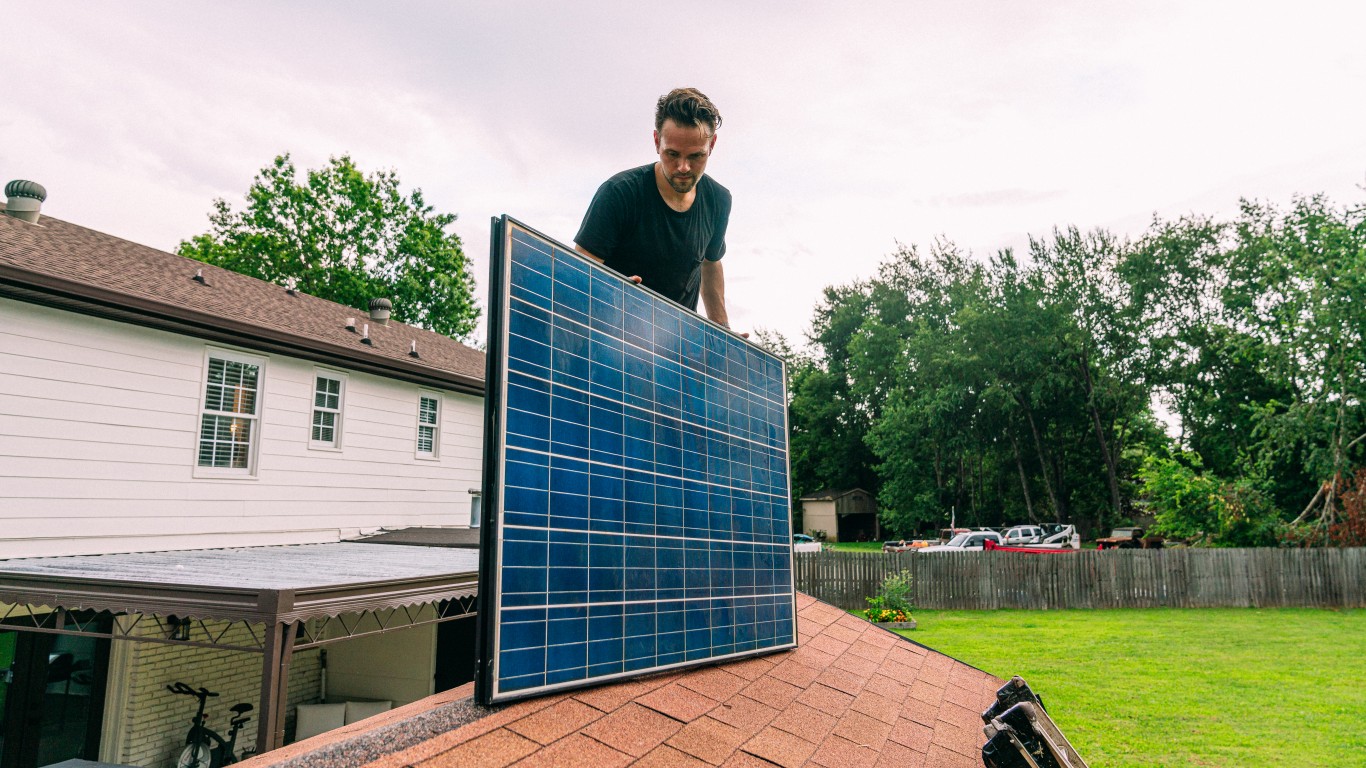
With a GDP of nearly $19 trillion and a population in excess of 323 million, the United States is the largest consumer market in the world. As such, global corporations make doing business in the U.S. a priority. To take full advantage of this market, American and foreign companies must protect their proprietary innovations and inventions through patent grants.
Of the three types of patents — utility, design, and plant — utility patents relate specifically to inventions and innovations, including any improvements to existing processes, products, and materials. As measured by utility patents, 2017 was a record-breaking year for corporate innovation. The U.S. Patent and Trademark Office granted companies just over 320,000 patents in 2017 — up 5.2% from the previous record of 304,126 patents granted the year before.
Rates of innovation vary considerably from one industry to the next and from one part of the world to the next. For example, a handful of industries — namely computing, telecommunications, and medicine — accounted for the bulk of innovations last year. Meanwhile, American companies accounted for 46% of patents granted in 2017, companies based in Asia accounted for 31%, and European companies accounted for 15%.
Of the thousands of American and international companies that were granted patents last year, just a few major corporations accounted for a massive share of global innovation. Fifty companies alone — including America’s most recognizable tech companies: Apple, Google, Microsoft, and Amazon — accounted for about 30% of patents.
Patent research company IFI Claims Patent Services tracks which specific entities are issued patents. As multiple entities are often owned by a single parent corporation, 24/7 Wall St. combined patent grants issued to the same parent company to identify the world’s 50 most innovative companies. While each company on this list was granted at least 700 patents last year, the companies at the top of the list secured thousands.
Click here to see the world’s 50 most innovative companies.
Click here to see our detailed findings and methodology.

50. Sharp Corp.
> 2017 patent grants: 748
> 2016 patent grants: 888
> Country: Japan
> Products: Televisions, home appliances, smartphones
[in-text-ad]
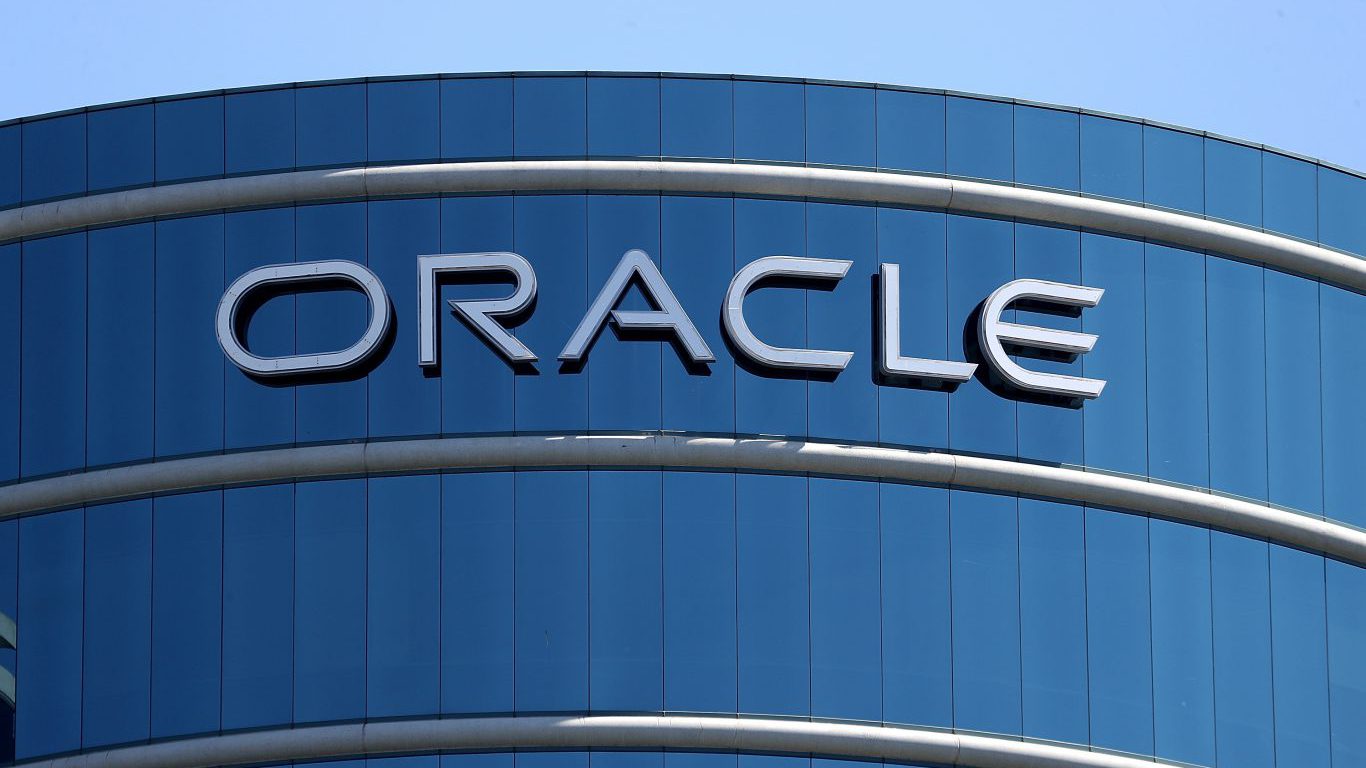
49. Oracle Corp.
> 2017 patent grants: 753
> 2016 patent grants: 667
> Country: United States
> Products: Database software and cloud storage systems
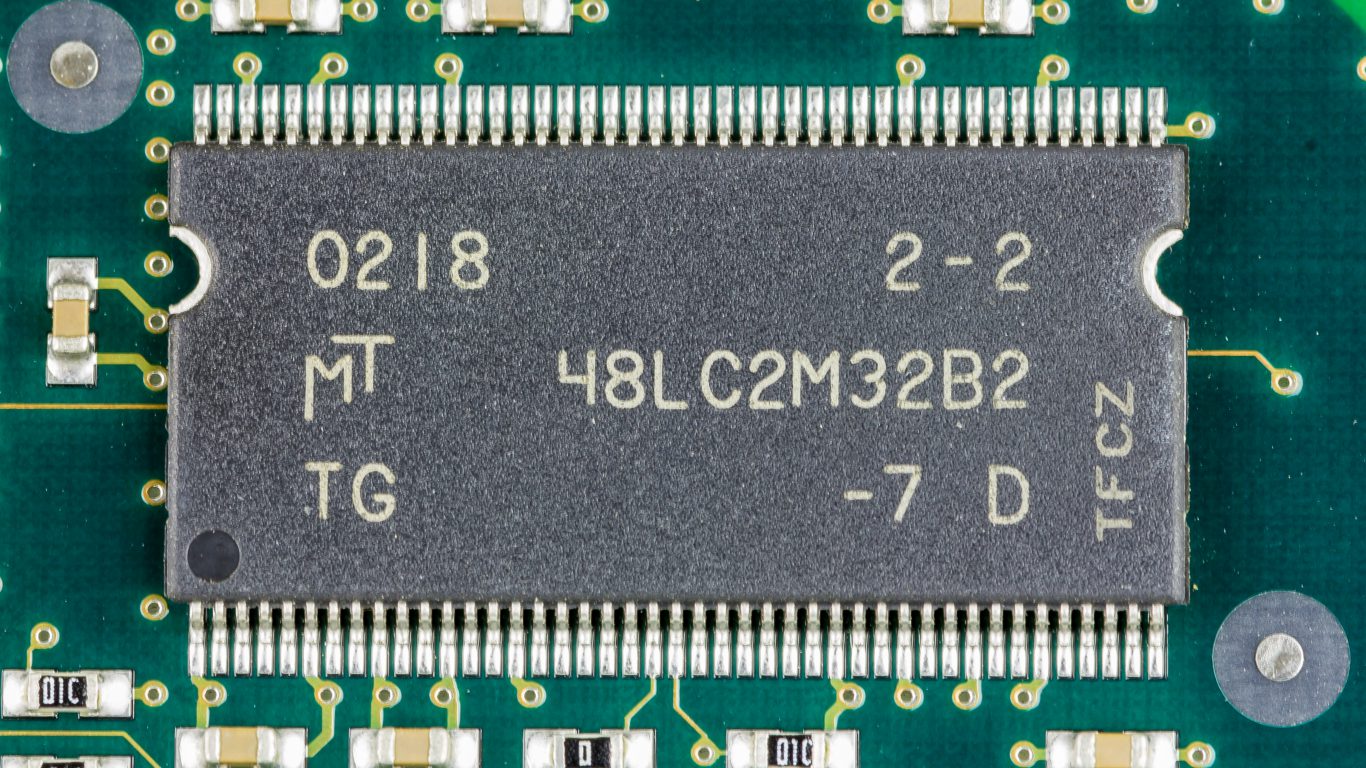
48. Micron Technology Inc.
> 2017 patent grants: 802
> 2016 patent grants: 863
> Country: United States
> Products: Computer accessories and storage

47. NEC Corp.
> 2017 patent grants: 820
> 2016 patent grants: 890
> Country: Japan
> Products: IT and communications services
[in-text-ad-2]
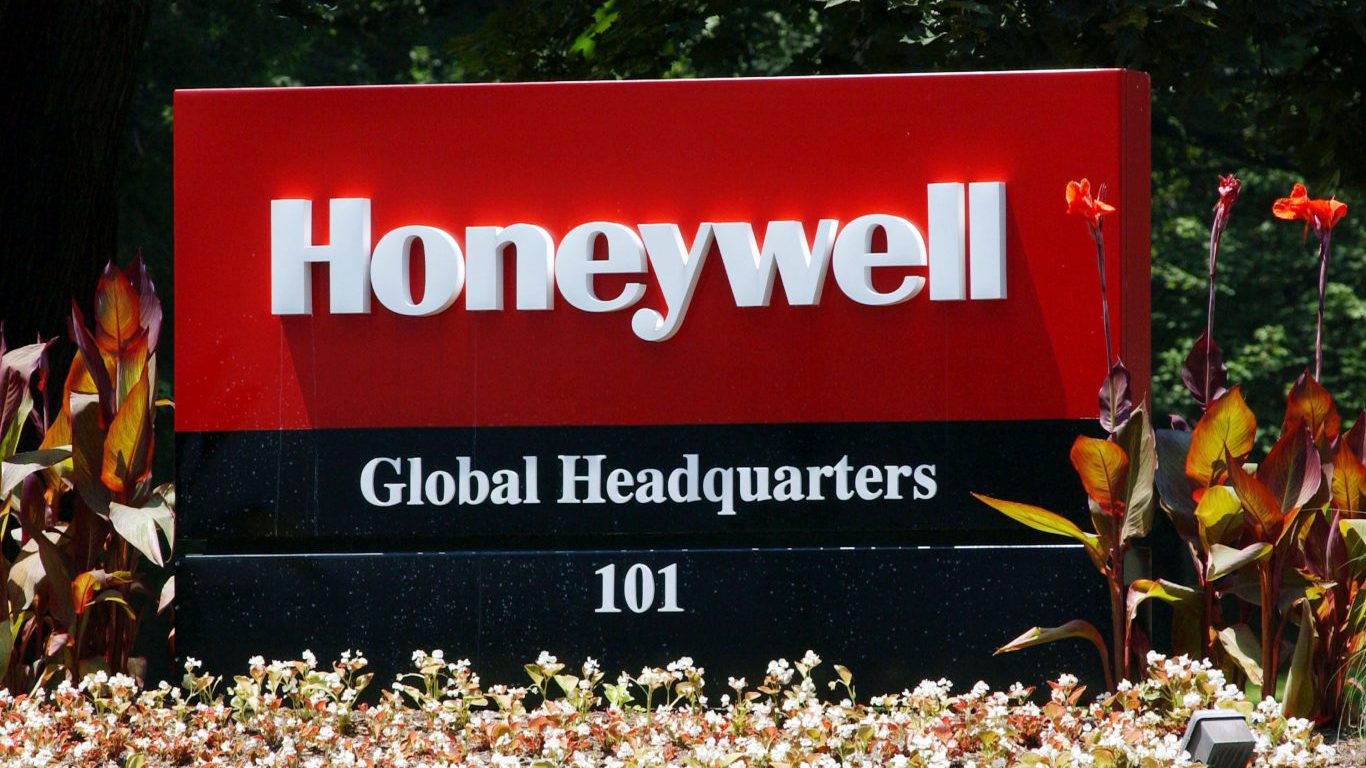
46. Honeywell International Inc
> 2017 patent grants: 856
> 2016 patent grants: 673
> Country: United States
> Products: Consumer products, aerospace engineering

45. Nokia
> 2017 patent grants: 890
> 2016 patent grants: 908
> Country: Finland
> Products: Mobile phones, computers, tablets
[in-text-ad]
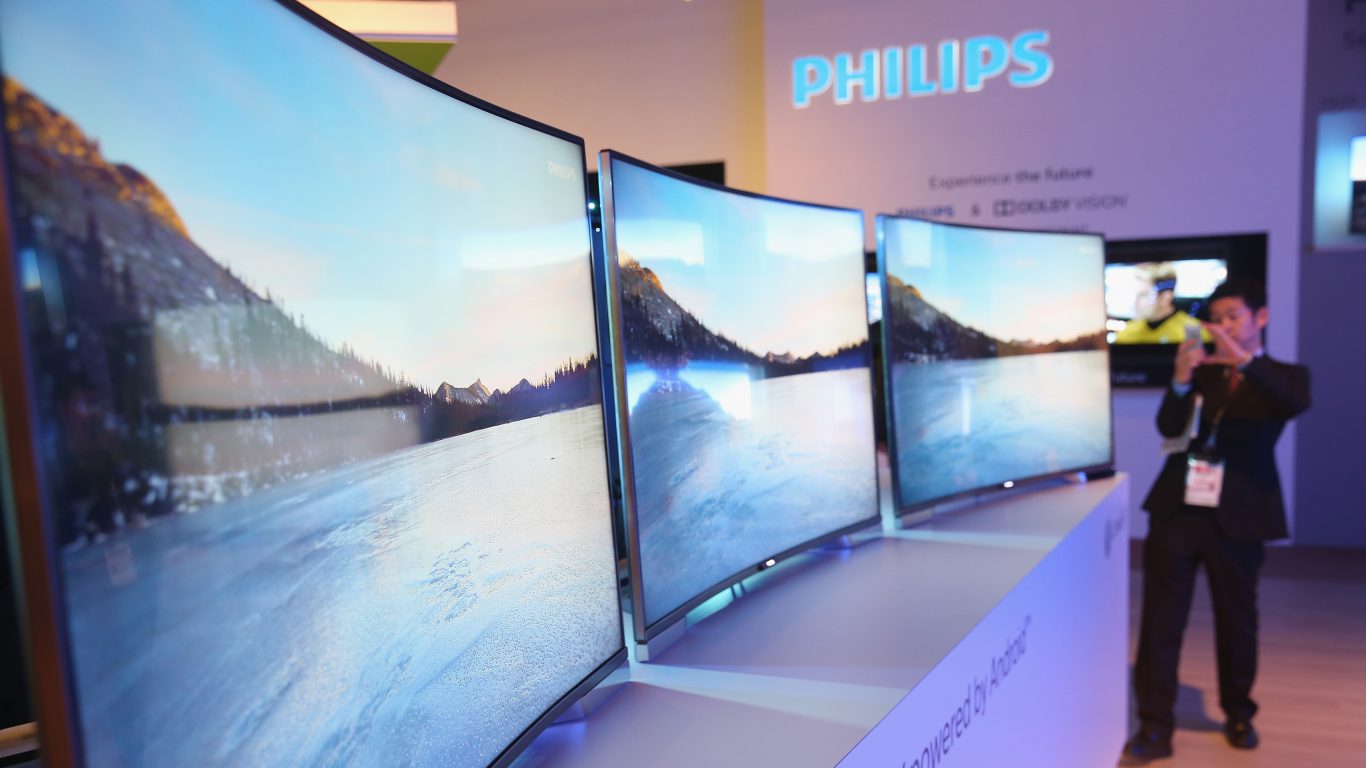
44. Koninklijke Philips N.V.
> 2017 patent grants: 905
> 2016 patent grants: 1,070
> Country: Netherlands
> Products: Lighting, televisions, personal health products
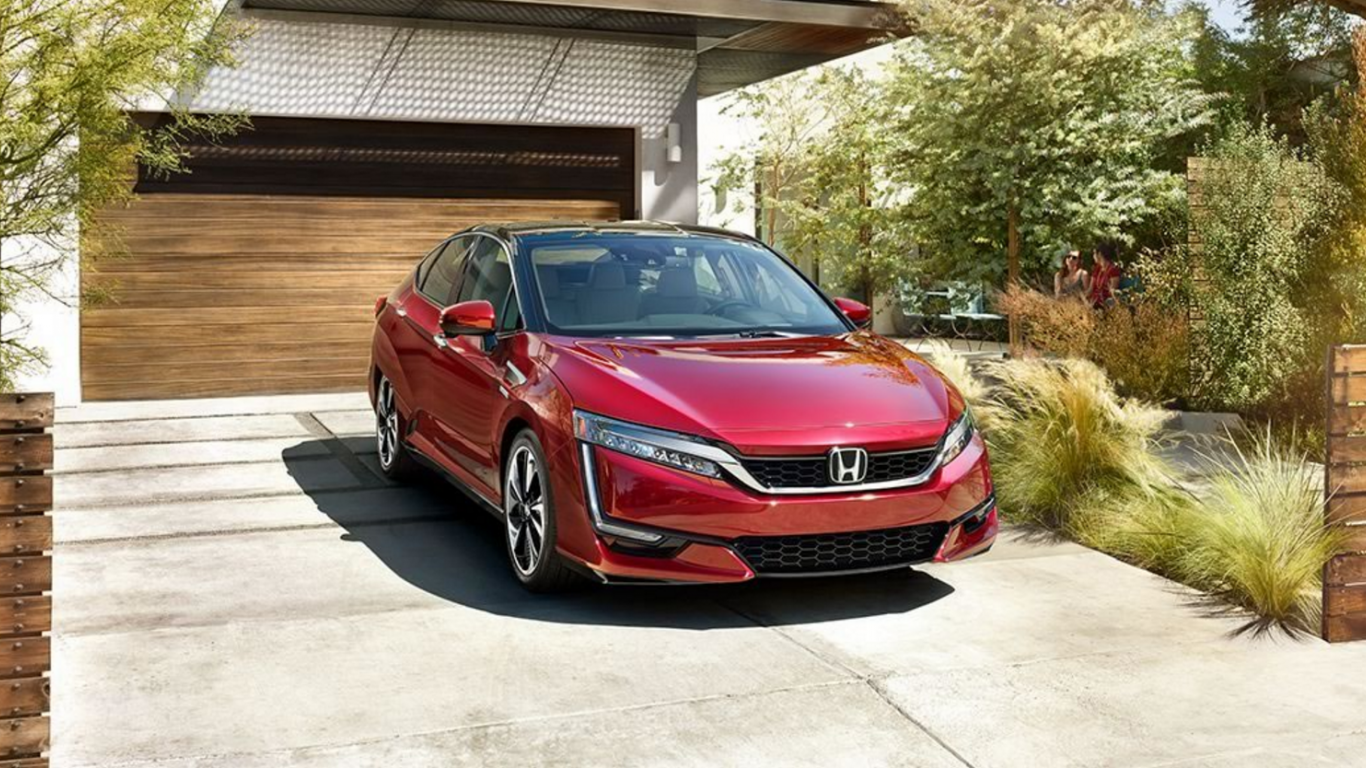
43. Honda Motor Company Ltd.
> 2017 patent grants: 910
> 2016 patent grants: 922
> Country: Japan
> Products: Automobiles

42. Texas Instruments Inc.
> 2017 patent grants: 923
> 2016 patent grants: 888
> Country: United States
> Products: Semiconductors, educational technology
[in-text-ad-2]
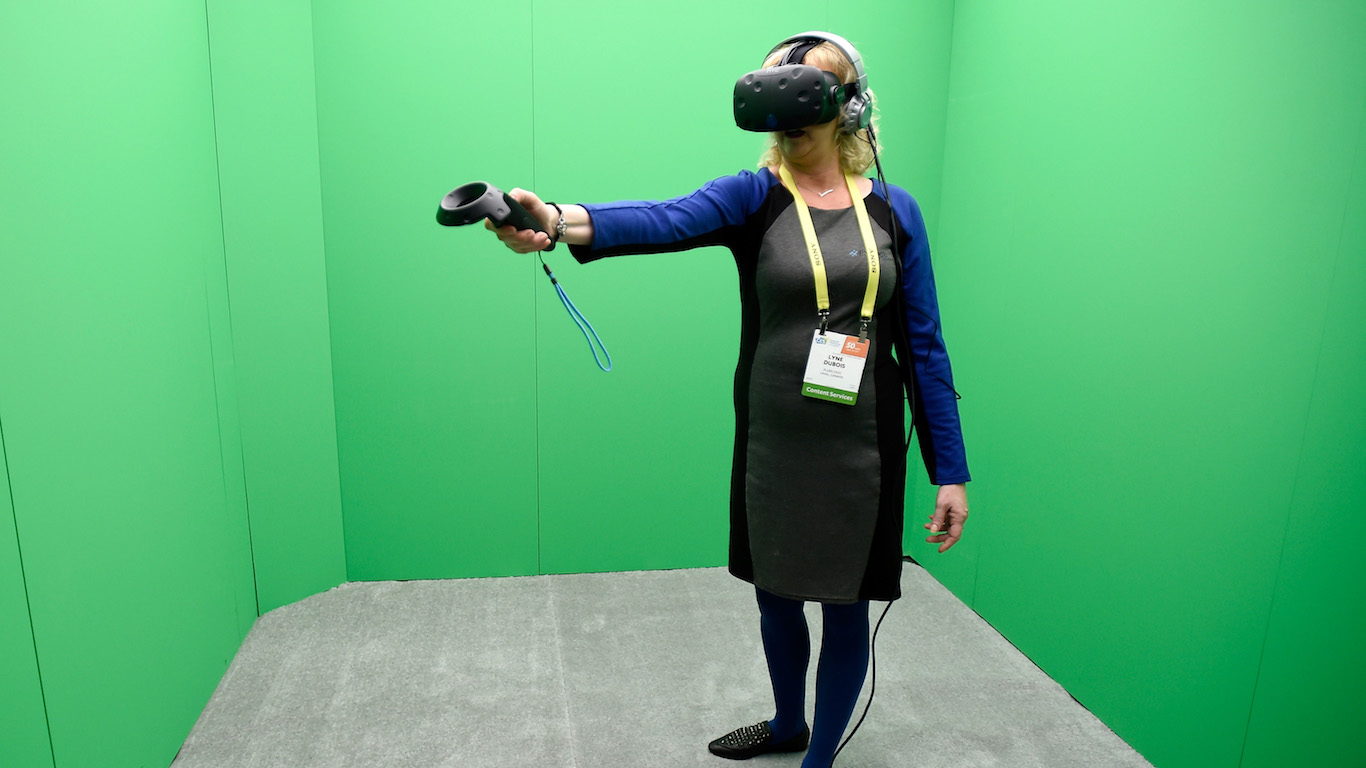
41. Denso Corp.
> 2017 patent grants: 929
> 2016 patent grants: 757
> Country: Japan
> Products: Auto parts
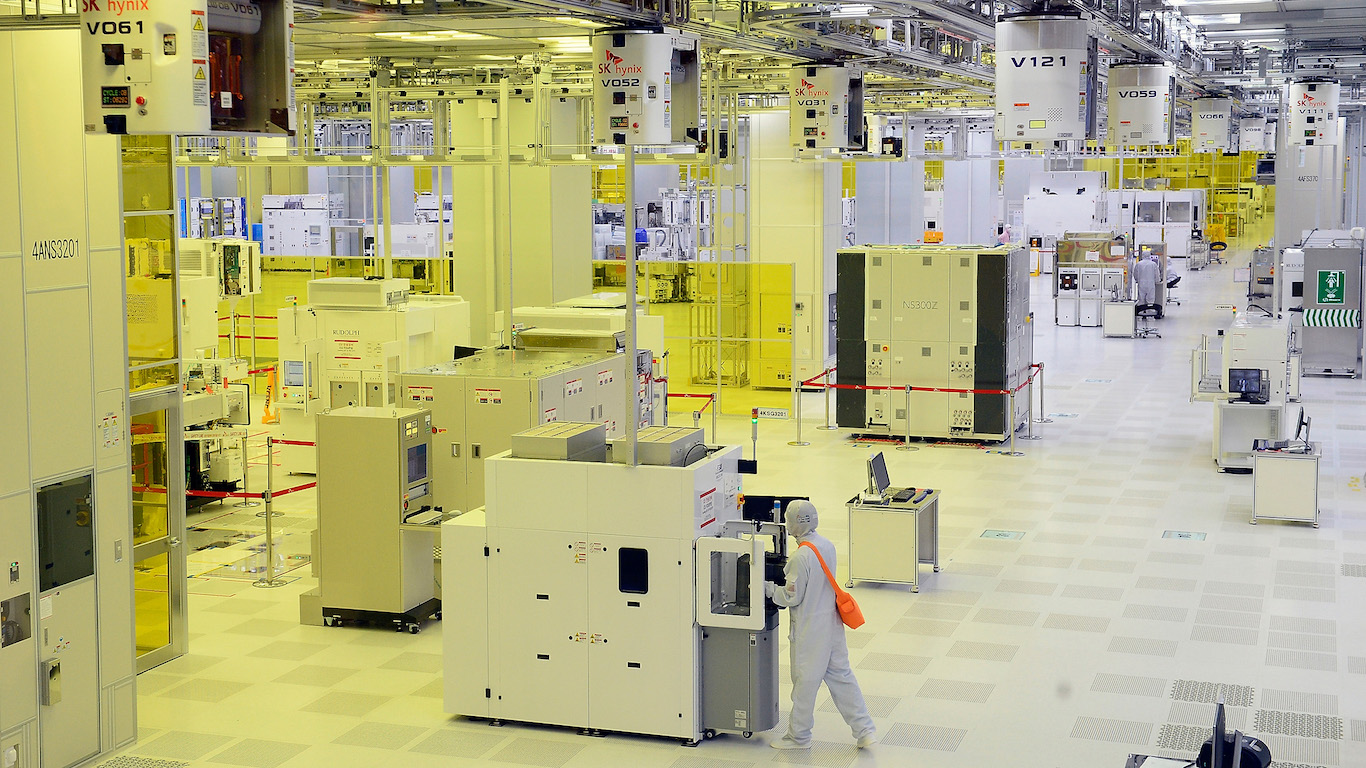
40. SK Hynix Inc.
> 2017 patent grants: 942
> 2016 patent grants: 1,126
> Country: South Korea
> Products: Semiconductors, memory chips
[in-text-ad]
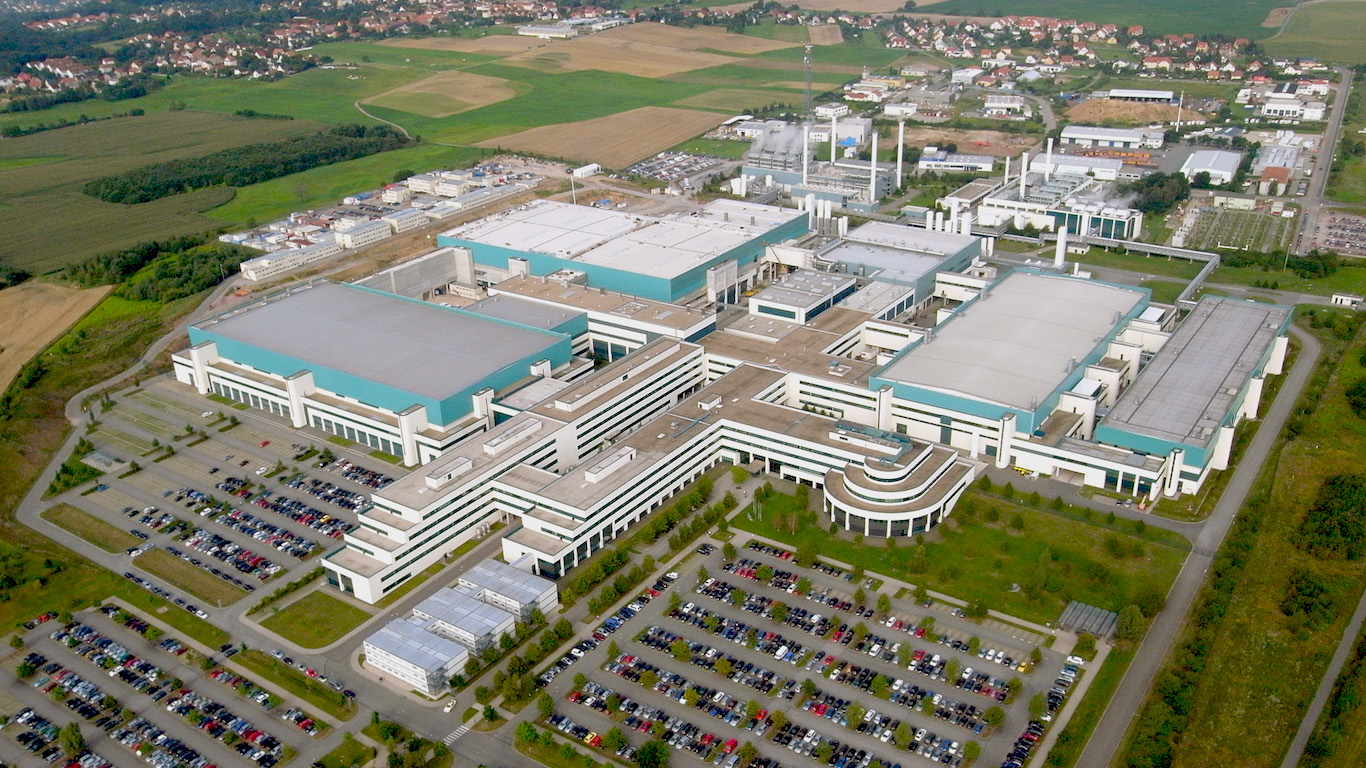
39. GlobalFoundries Inc.
> 2017 patent grants: 950
> 2016 patent grants: 1,501
> Country: Cayman Islands
> Products: Semiconductors
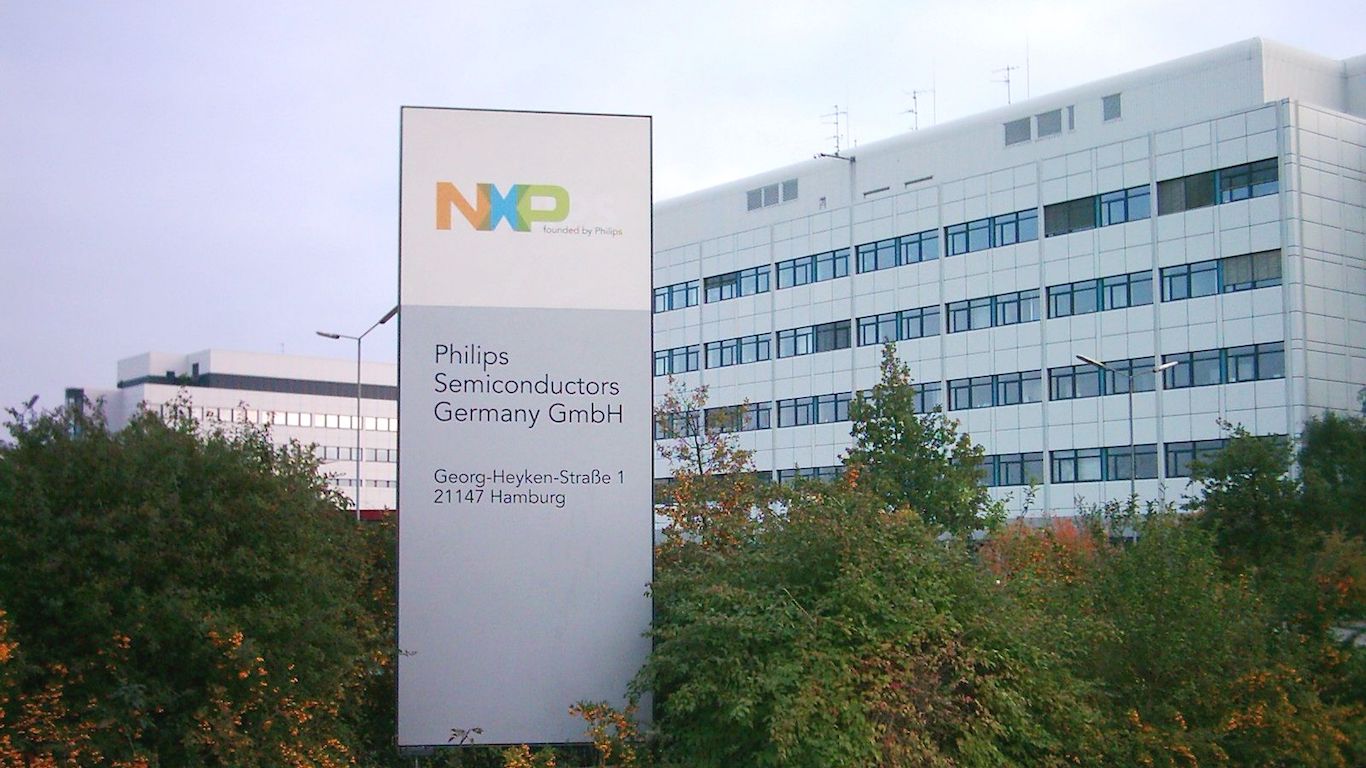
38. NXP Semiconductors N.V.
> 2017 patent grants: 950
> 2016 patent grants: 998
> Country: Netherlands
> Products: Semiconductors, auto parts
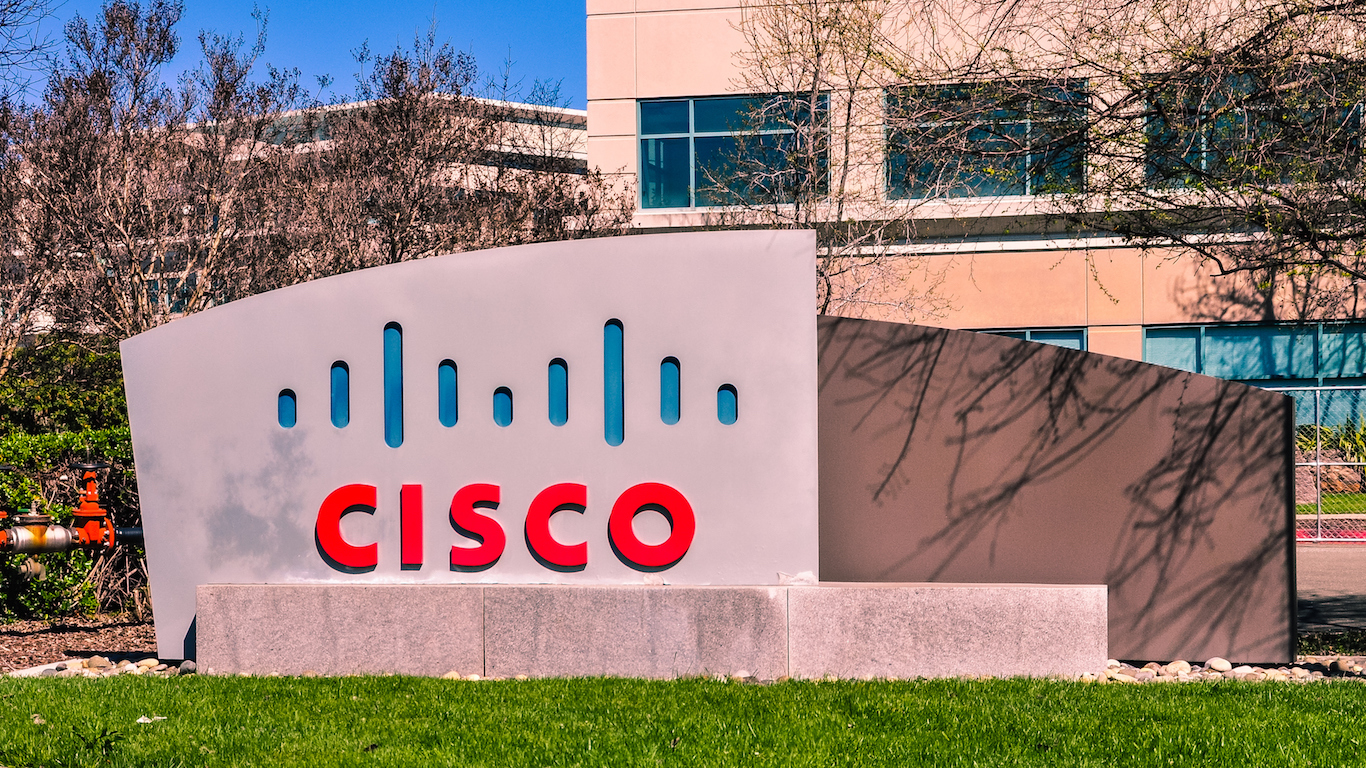
37. Cisco Systems Inc.
> 2017 patent grants: 967
> 2016 patent grants: 978
> Country: United States
> Products: Software, routers, internet security
[in-text-ad-2]
36. Semiconductor Energy Laboratory Co. Ltd.
> 2017 patent grants: 977
> 2016 patent grants: 1,054
> Country: Japan
> Products: Semiconductors

35. HP Inc.
> 2017 patent grants: 984
> 2016 patent grants: 1,051
> Country: United States
> Products: Computers, printers
[in-text-ad]

34. Infineon Technologies AG
> 2017 patent grants: 1,005
> 2016 patent grants: 903
> Country: Germany
> Products: Semiconductors

33. Xerox Corp.
> 2017 patent grants: 1,026
> 2016 patent grants: 1,215
> Country: United States
> Products: Printers

32. General Motors Co.
> 2017 patent grants: 1,066
> 2016 patent grants: 1,124
> Country: United States
> Products: Automobiles
[in-text-ad-2]
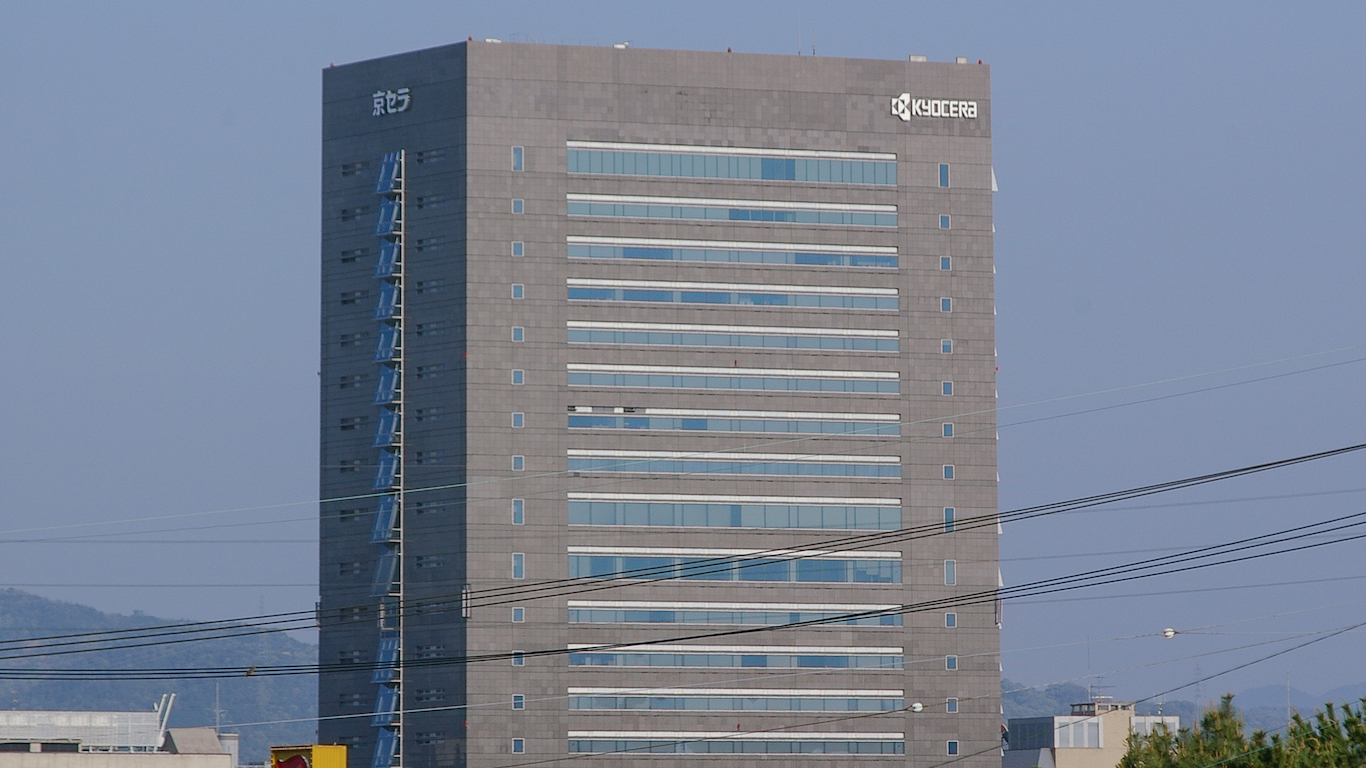
31. Kyocera Corp.
> 2017 patent grants: 1,144
> 2016 patent grants: 1,132
> Country: Japan
> Products: Mobile phones, consumer electronics, power tools

30. Ricoh Company Ltd.
> 2017 patent grants: 1,145
> 2016 patent grants: 1,412
> Country: Japan
> Products: Printers, cameras, watches, IT services
[in-text-ad]
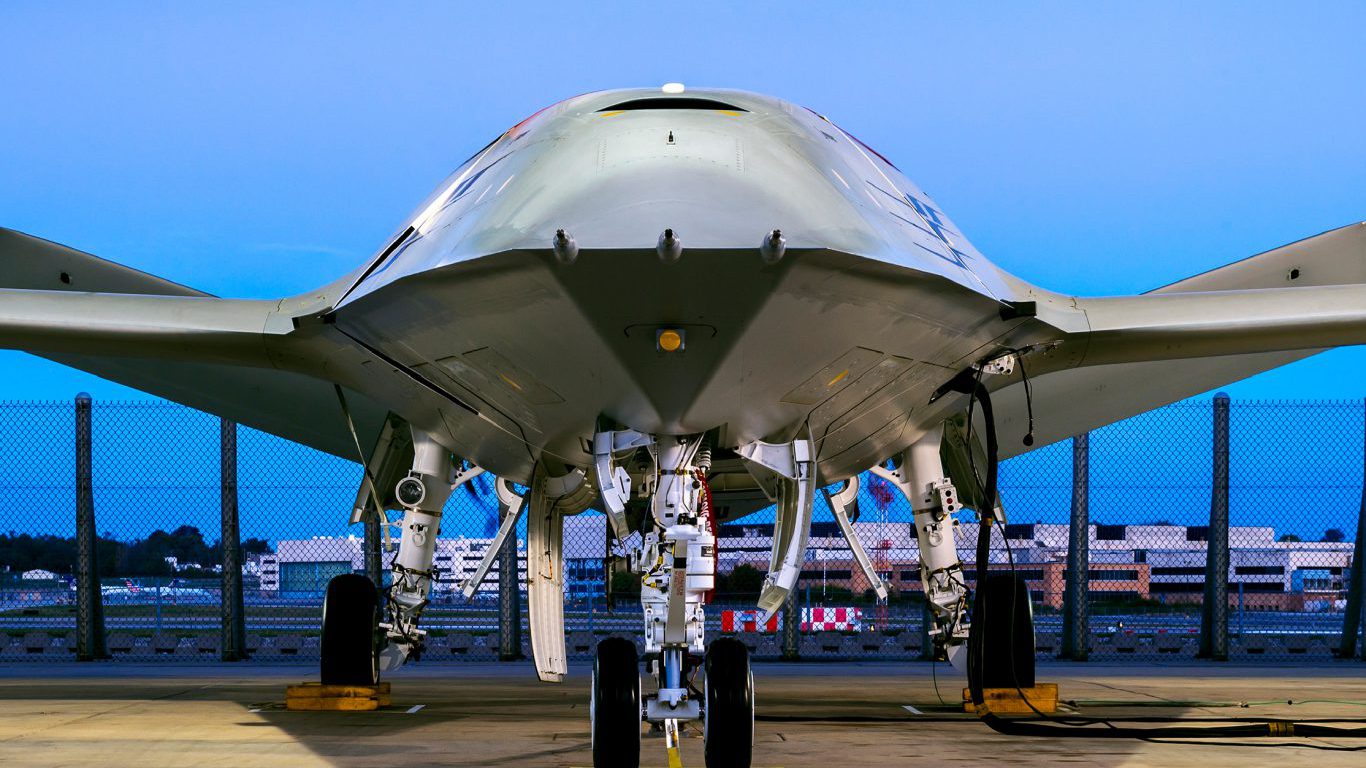
29. Boeing Co.
> 2017 patent grants: 1,177
> 2016 patent grants: 1,055
> Country: United States
> Products: Aerospace and military technology
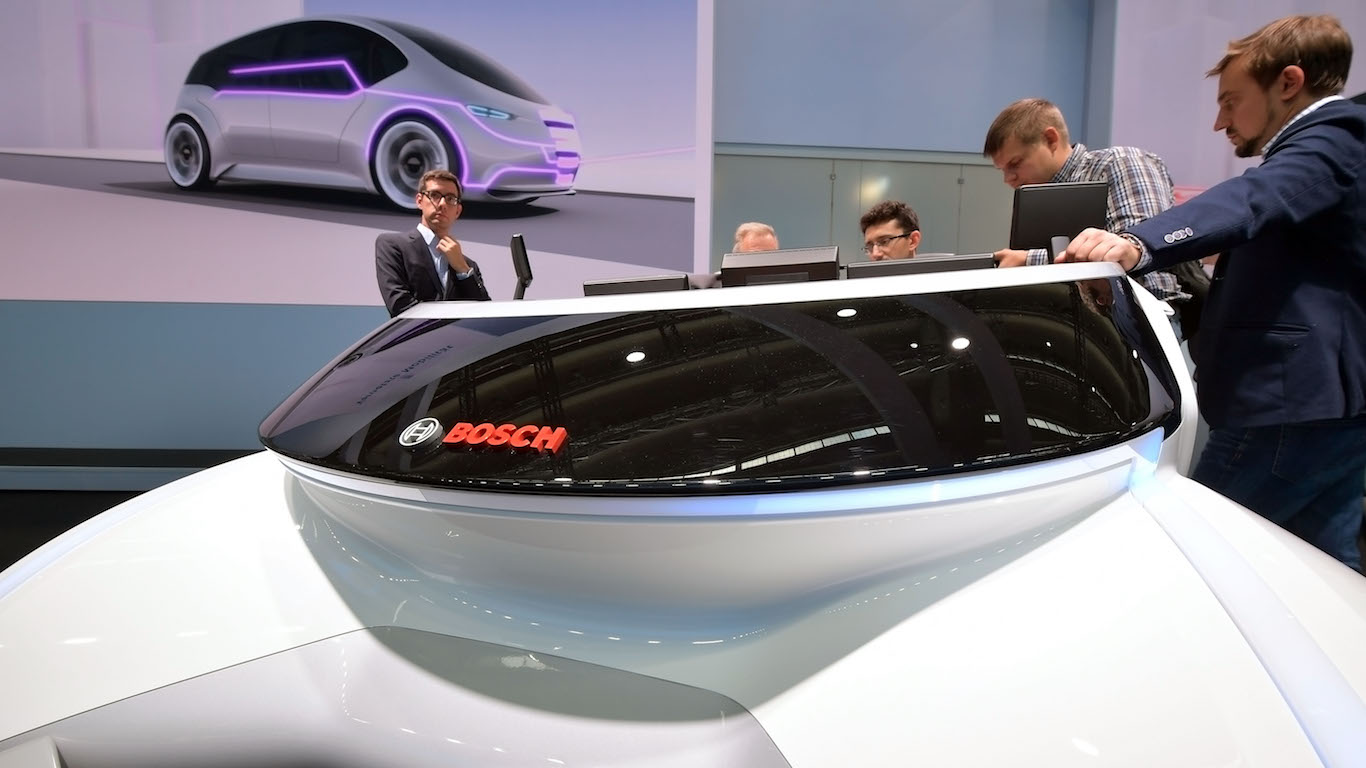
28. Robert Bosch GmbH
> 2017 patent grants: 1,234
> 2016 patent grants: 1,209
> Country: Germany
> Products: Industrial technology, consumer electronics

27. AT&T Inc.
> 2017 patent grants: 1,265
> 2016 patent grants: 1,232
> Country: United States
> Products: Telecommunications, entertainment, technology
[in-text-ad-2]

26. Siemens AG
> 2017 patent grants: 1,337
> 2016 patent grants: 1,337
> Country: Germany
> Products: Home appliances, automation systems, healthcare technology

25. Seiko Epson Corp.
> 2017 patent grants: 1,406
> 2016 patent grants: 1,650
> Country: Japan
> Products: Printers, projectors, wearable products
[in-text-ad]

24. Hyundai Motor Co.
> 2017 patent grants: 1,451
> 2016 patent grants: 1,162
> Country: South Korea
> Products: Automobiles

23. Hitachi Ltd.
> 2017 patent grants: 1,497
> 2016 patent grants: 1,534
> Country: Japan
> Products: Telecommunication, power systems, consumer electronics
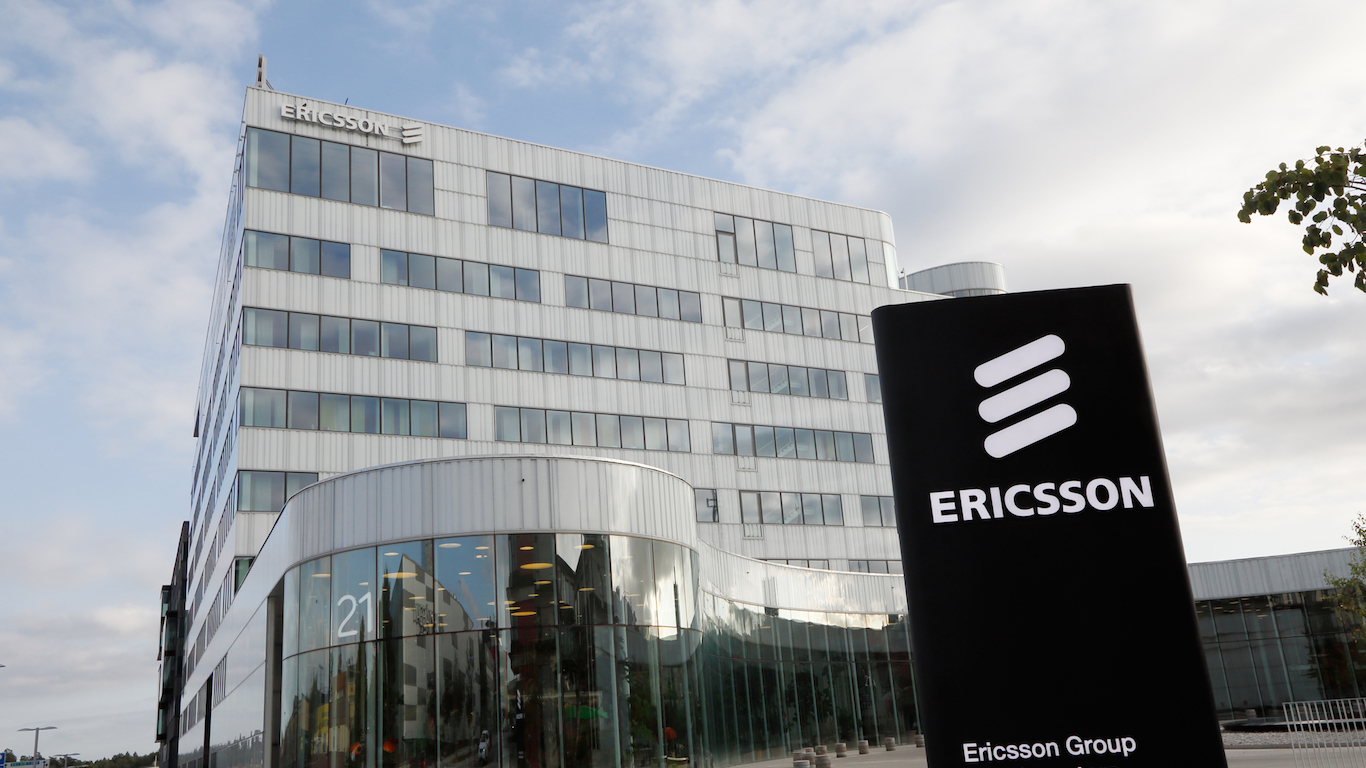
22. Telefonaktiebolaget L.M. Ericsson
> 2017 patent grants: 1,552
> 2016 patent grants: 1,552
> Country: Sweden
> Products: IT services, public safety management, electronic components
[in-text-ad-2]

21. Fujitsu Ltd.
> 2017 patent grants: 1,604
> 2016 patent grants: 1,636
> Country: Japan
> Products: Semiconductors, operating systems, computer storage

20. Huawei Technologies Co.
> 2017 patent grants: 1,616
> 2016 patent grants: 1,353
> Country: China
> Products: Mobile phones, tablets, routers, IT infrastructure
[in-text-ad]

19. General Electric Co.
> 2017 patent grants: 1,742
> 2016 patent grants: 1,871
> Country: United States
> Products: Home appliances, jet engines, commercial lending
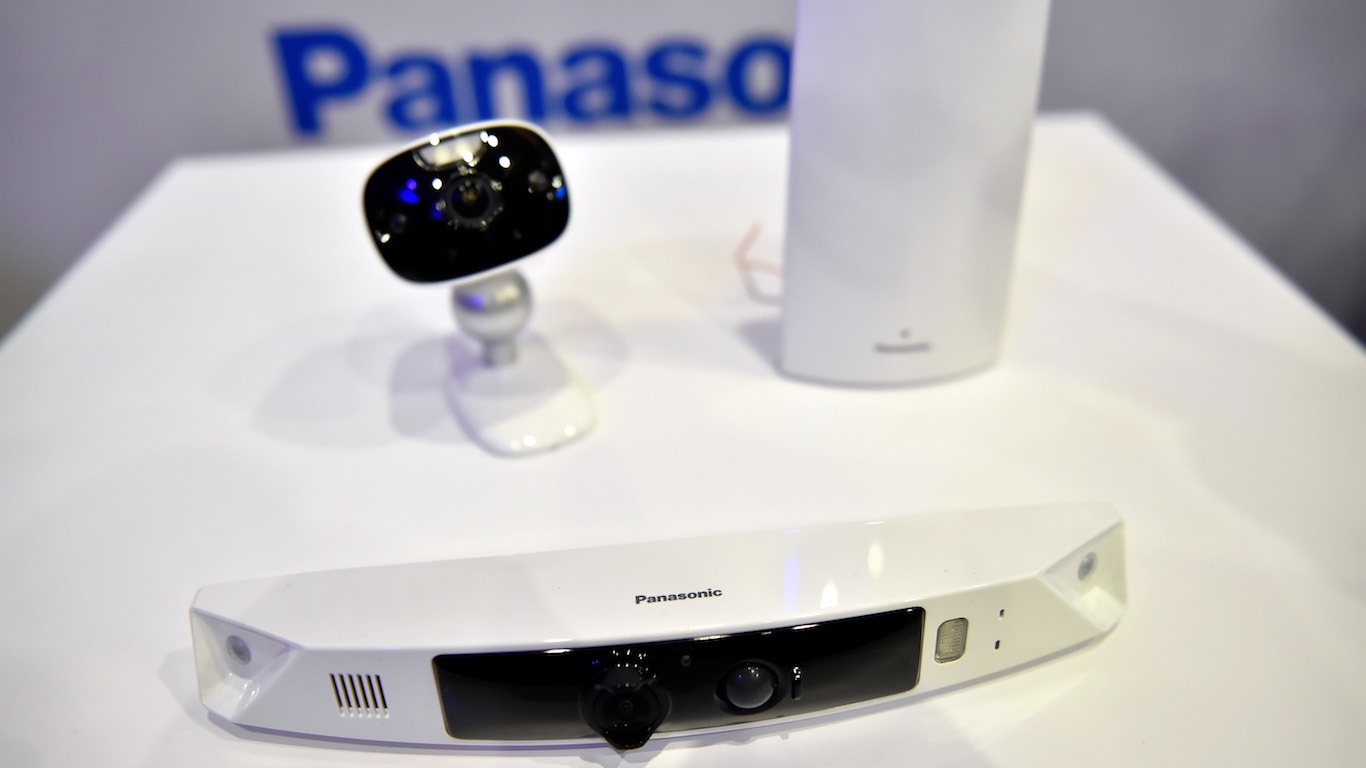
18. Panasonic Corp.
> 2017 patent grants: 1,787
> 2016 patent grants: 1,977
> Country: Japan
> Products: Cameras, home appliances, televisions
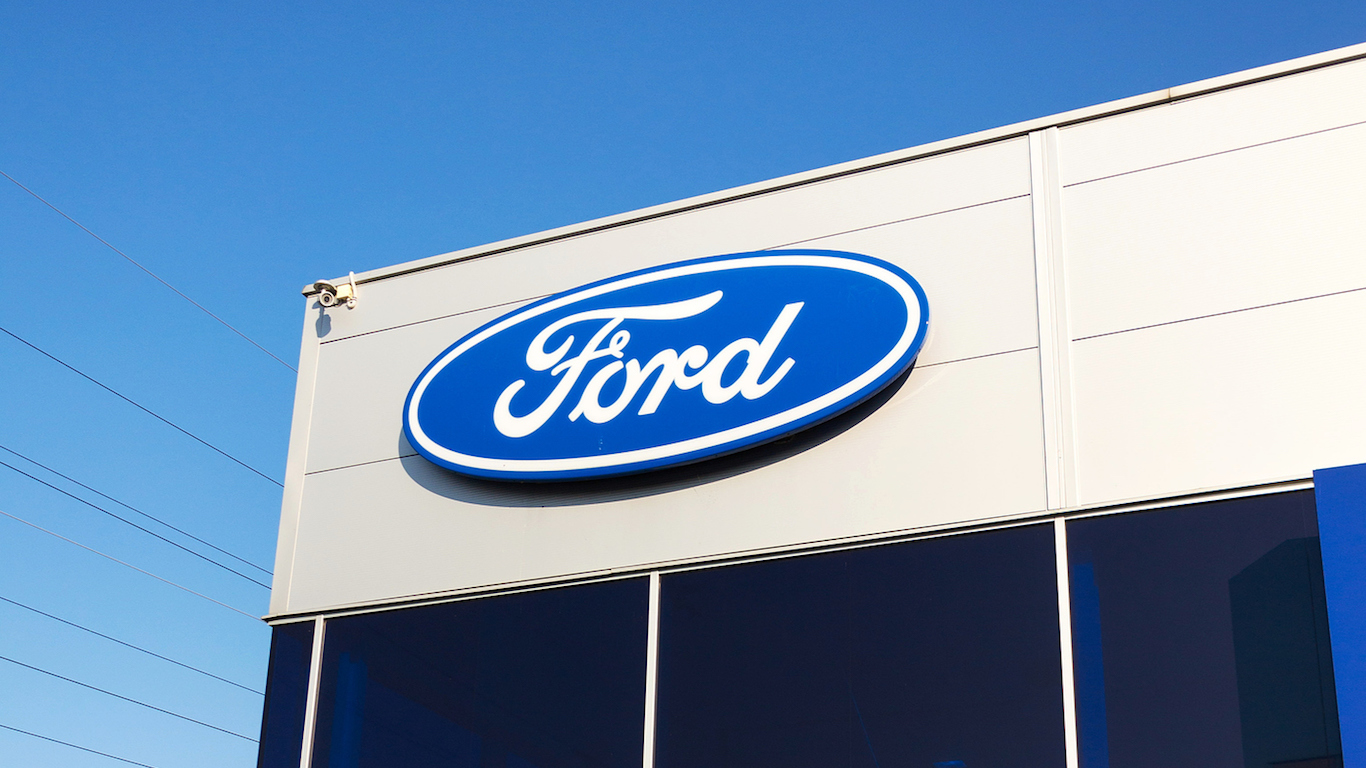
17. Ford Motor Co.
> 2017 patent grants: 1,868
> 2016 patent grants: 1,525
> Country: United States
> Products: Automobiles
[in-text-ad-2]
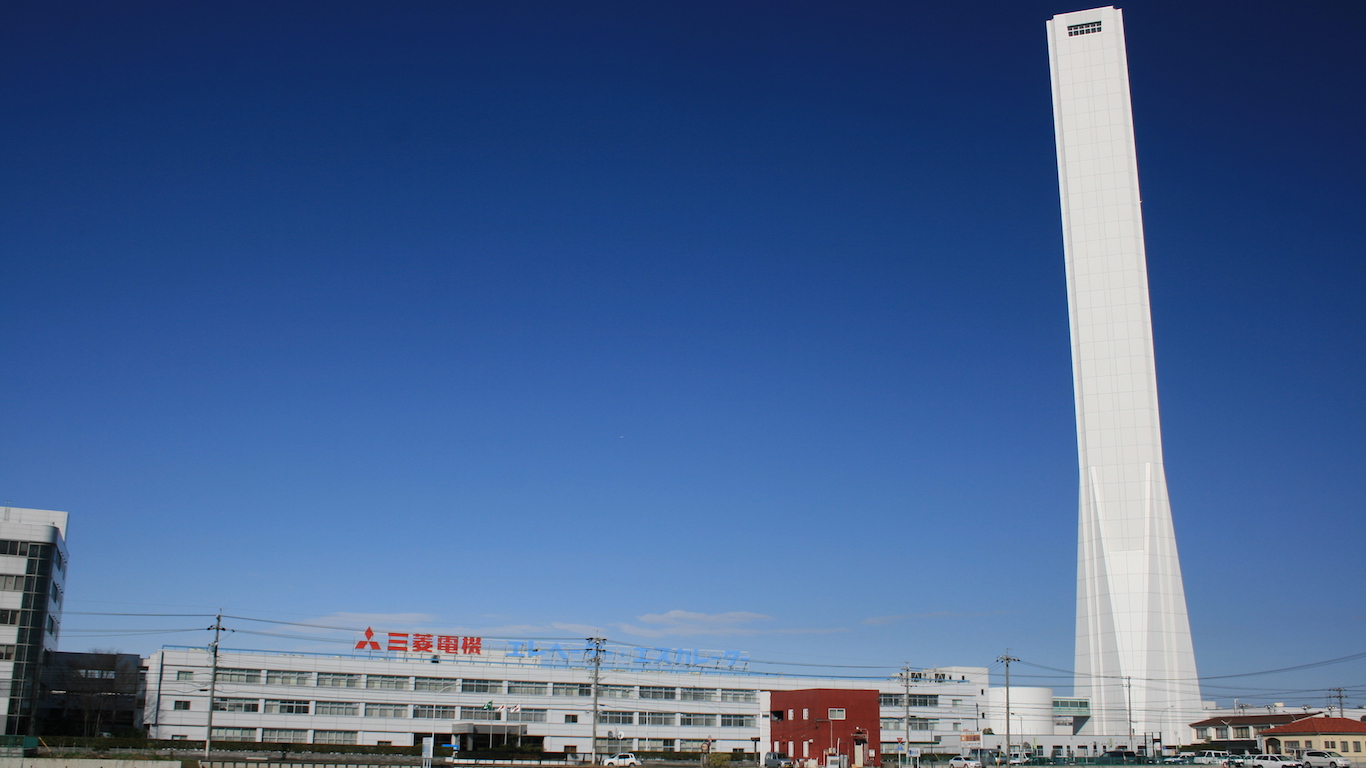
16. Mitsubishi Corp.
> 2017 patent grants: 1,916
> 2016 patent grants: 1,701
> Country: Japan
> Products: Automobiles, air conditioners, power generation systems
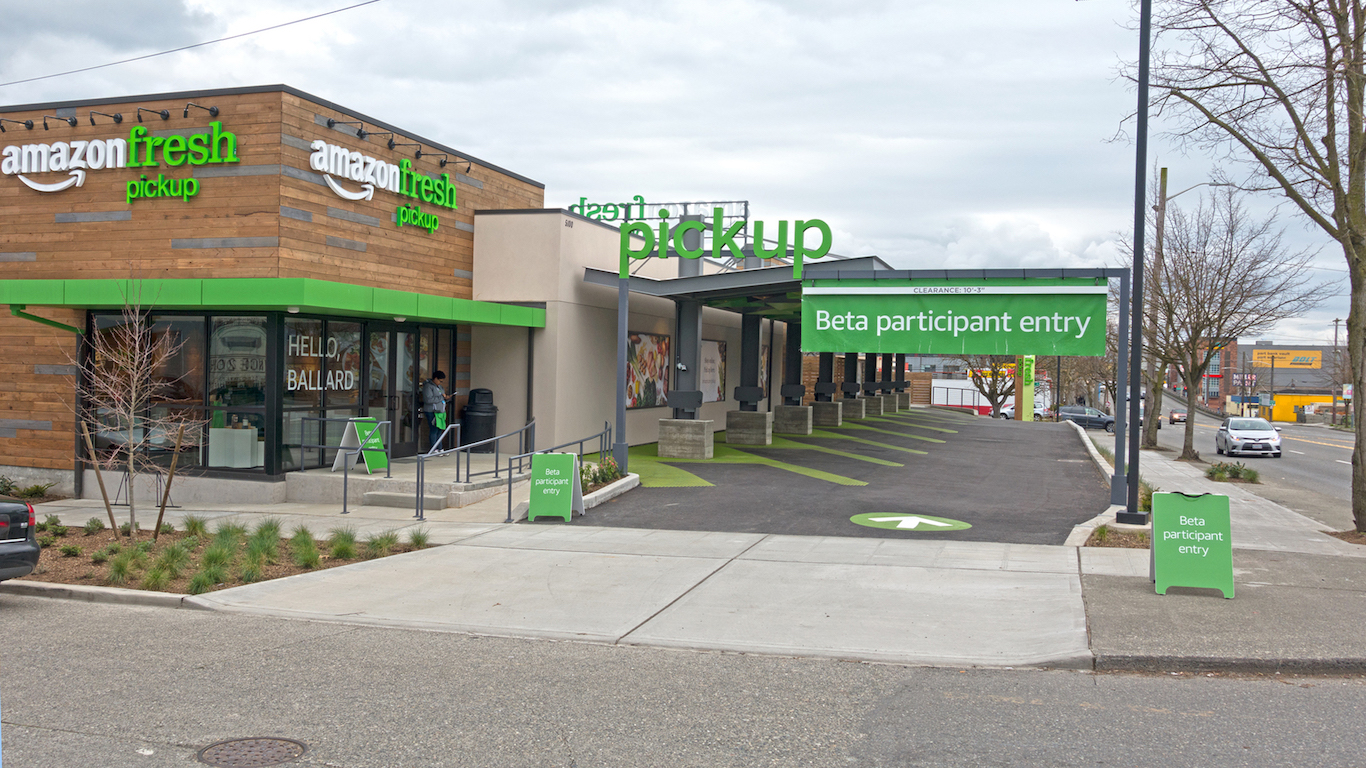
15. Amazon.com Inc
> 2017 patent grants: 1,963
> 2016 patent grants: 1,672
> Country: United States
> Products: Consumer products, e-readers, TV and movie streaming
[in-text-ad]

14. BoE Systems
> 2017 patent grants: 1,999
> 2016 patent grants: 1,340
> Country: United States
> Products: Data collection and processing

13. Toshiba Corp.
> 2017 patent grants: 2,073
> 2016 patent grants: 2,437
> Country: Japan
> Products: Laptops, hard drives, digital displays, business solutions
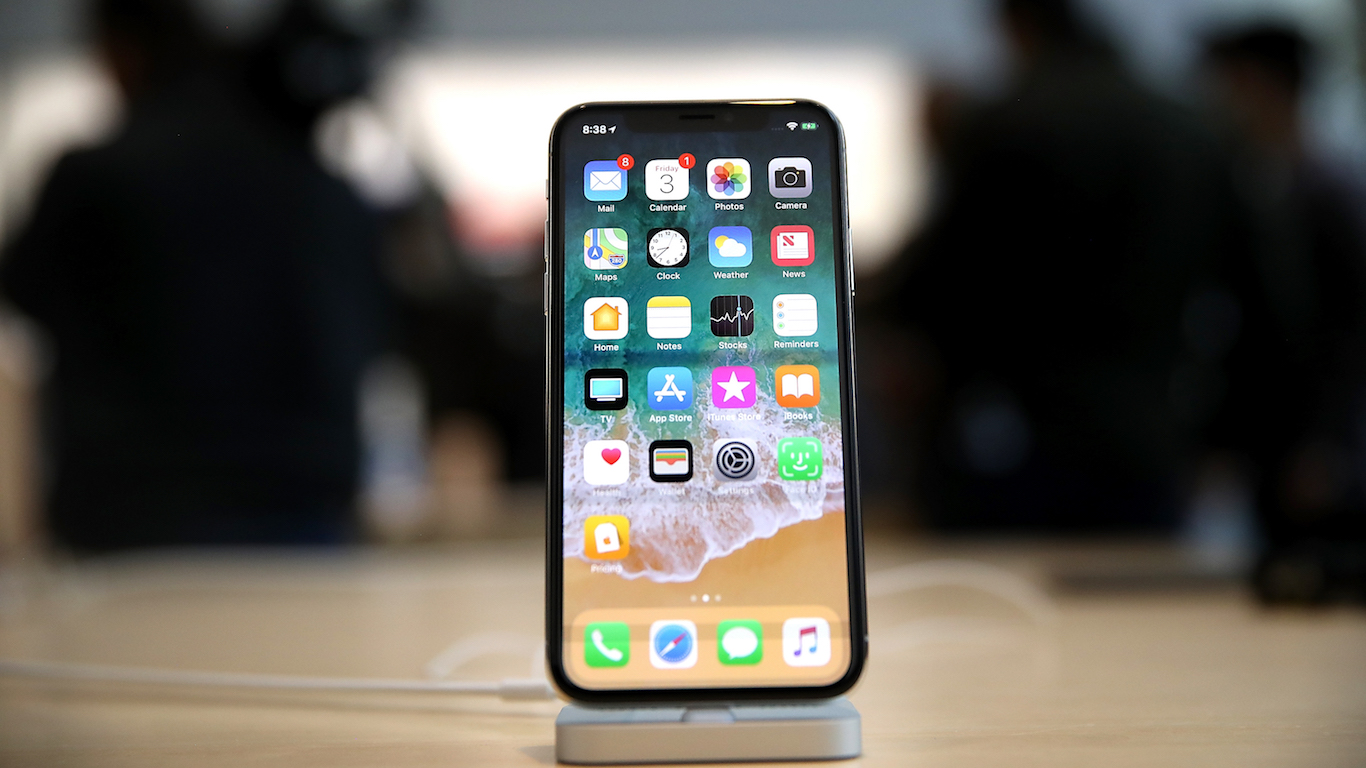
12. Apple Inc.
> 2017 patent grants: 2,229
> 2016 patent grants: 2,103
> Country: United States
> Products: Mobile phones, computers, tablets, software
[in-text-ad-2]
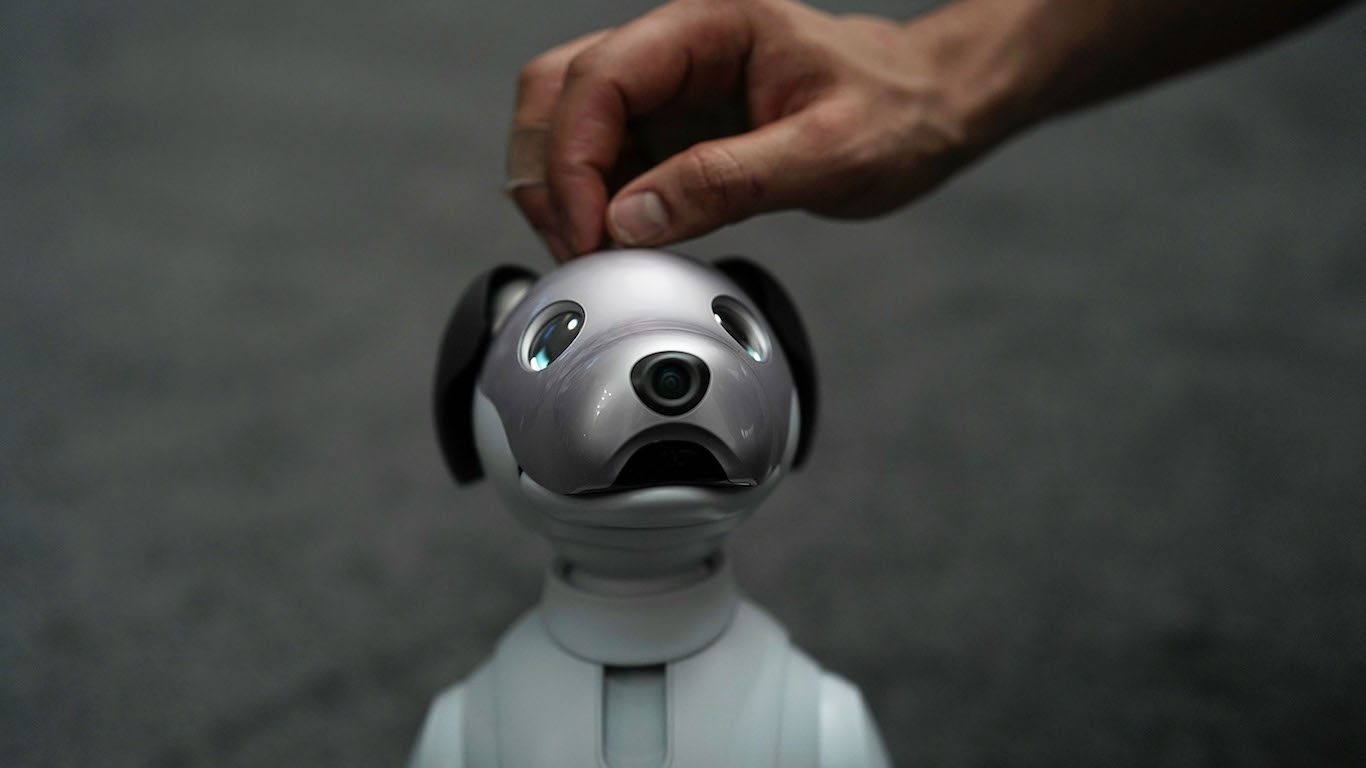
11. Sony Corp.
> 2017 patent grants: 2,331
> 2016 patent grants: 2,298
> Country: Japan
> Products: Digital cameras, televisions, speakers, mobile phones
10. Taiwan Semiconductor Manufacturing Company Ltd.
> 2017 patent grants: 2,425
> 2016 patent grants: 2,288
> Country: Taiwan
> Products: Semiconductors
[in-text-ad]
9. Microsoft Corp.
> 2017 patent grants: 2,441
> 2016 patent grants: 2,410
> Country: United States
> Products: Software, operating systems, mobile phones

8. Toyota Motor Corp.
> 2017 patent grants: 2,446
> 2016 patent grants: 1,877
> Country: Japan
> Products: Automobiles, automobile accessories
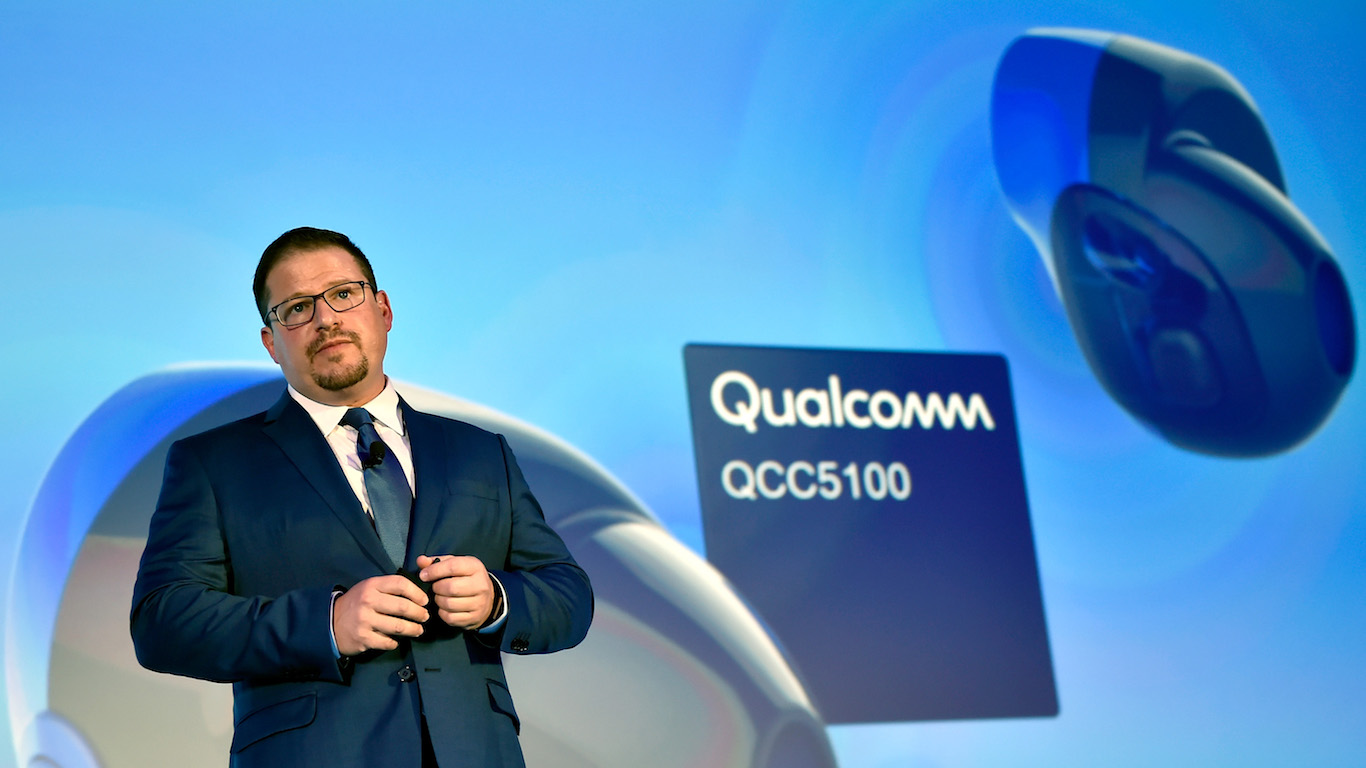
7. Qualcomm Inc.
> 2017 patent grants: 2,628
> 2016 patent grants: 2,925
> Country: United States
> Products: Semiconductors, cellular modems, telecommunications equipment
[in-text-ad-2]
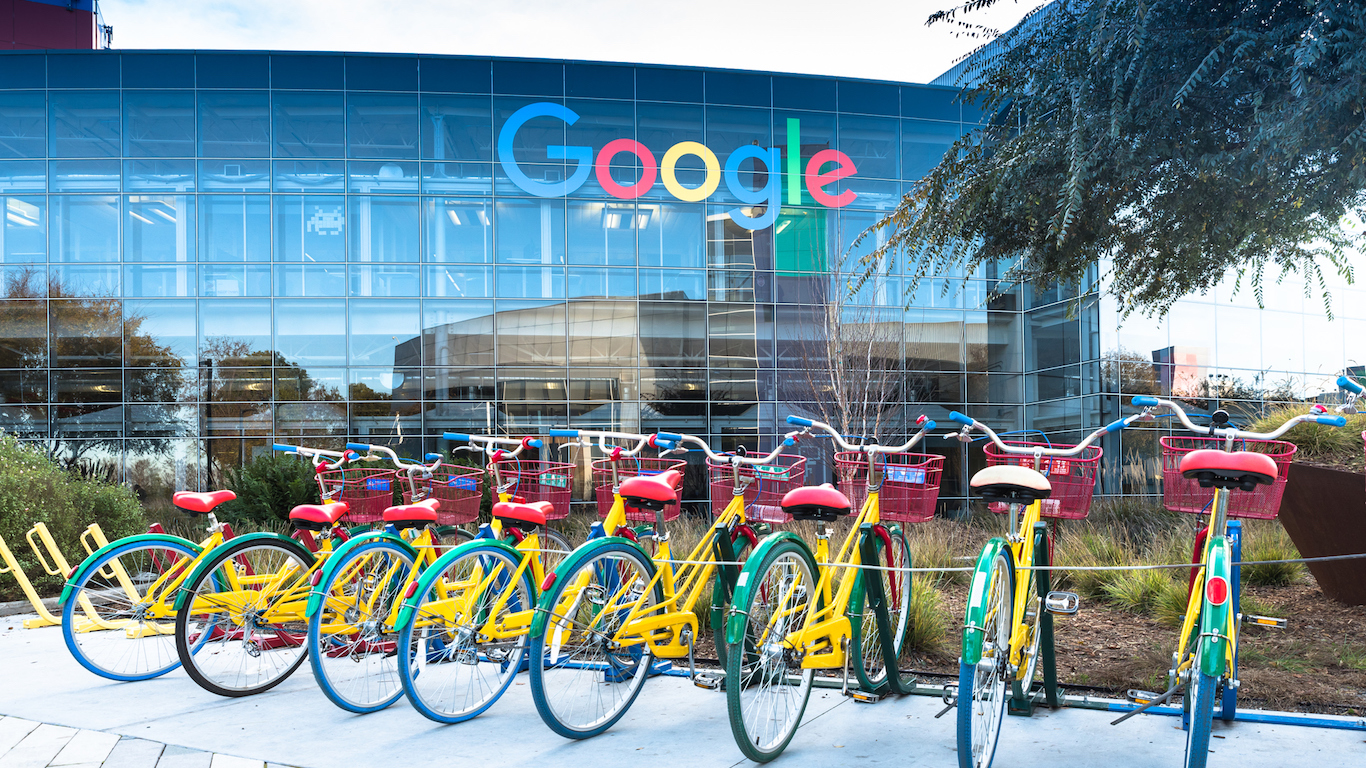
6. Google LLC
> 2017 patent grants: 2,709
> 2016 patent grants: 3,219
> Country: United States
> Products: Search engine, internet browser, laptops
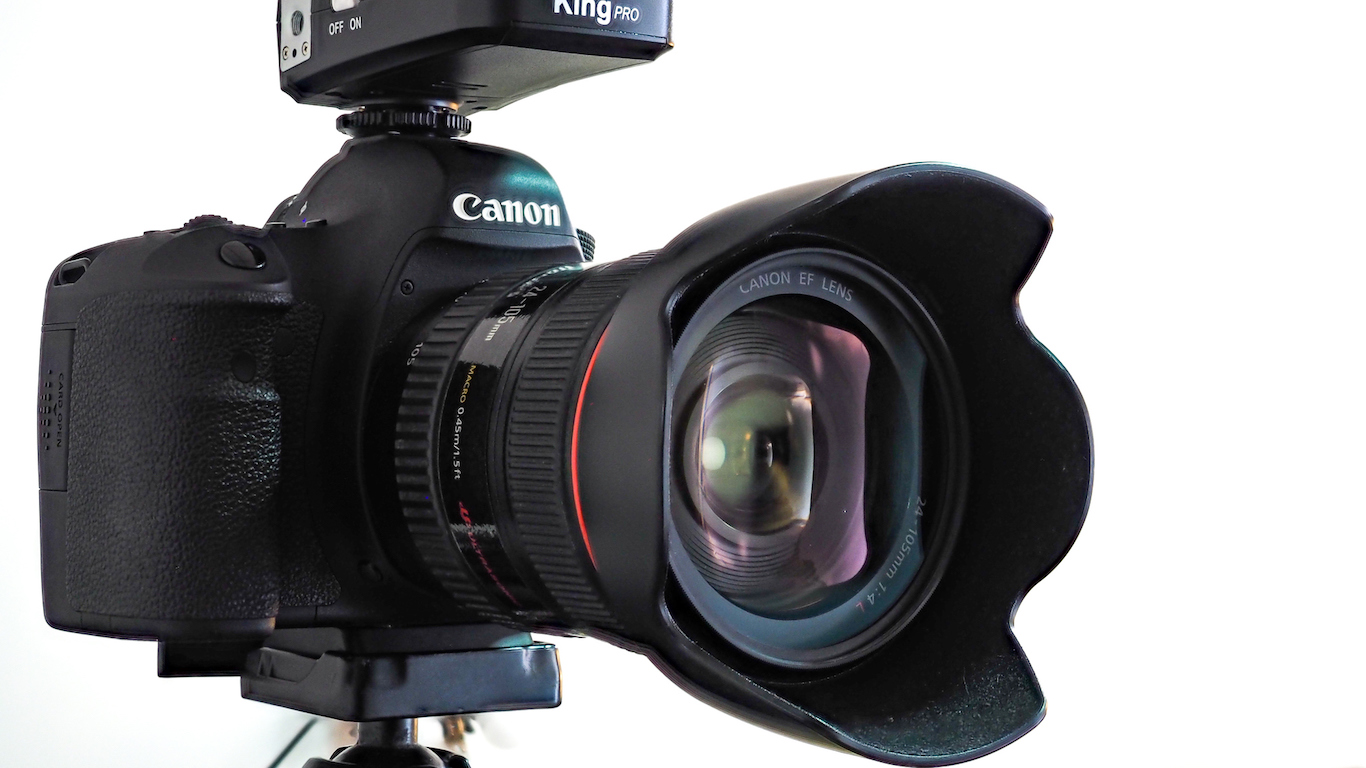
5. Canon Inc.
> 2017 patent grants: 3,285
> 2016 patent grants: 3,665
> Country: Japan
> Products: Cameras, camcorders, printers
[in-text-ad]
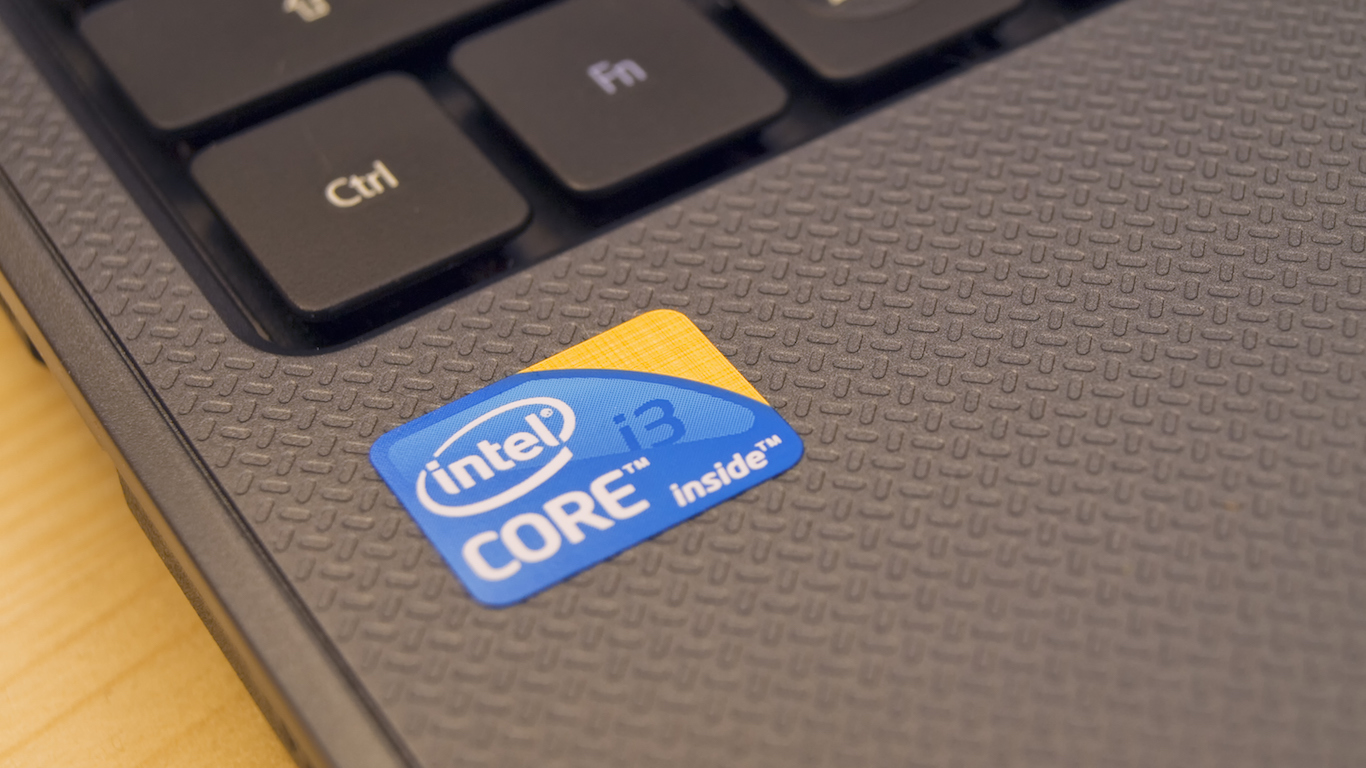
4. Intel Corp.
> 2017 patent grants: 3,435
> 2016 patent grants: 3,080
> Country: United States
> Products: Personal computers, consumer electronics, processors
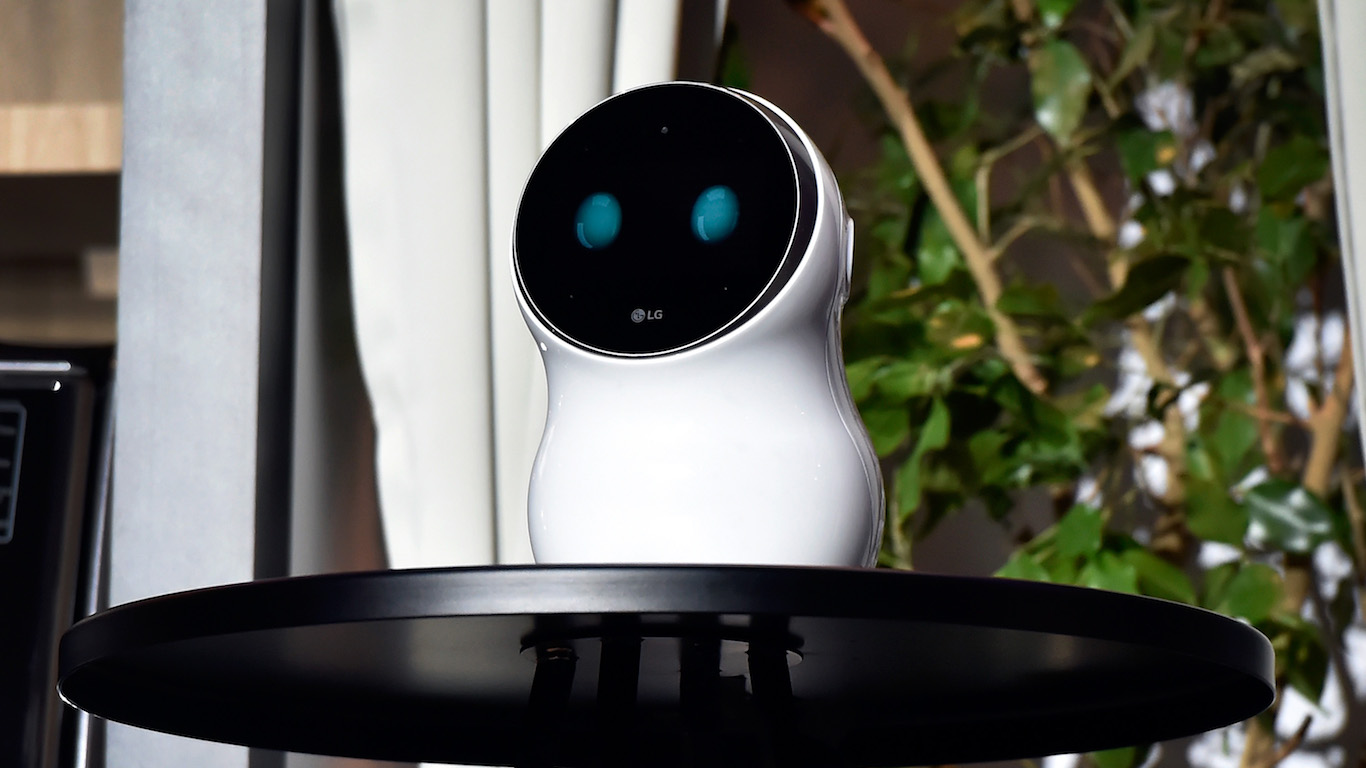
3. LG Electronics Inc.
> 2017 patent grants: 4,469
> 2016 patent grants: 4,013
> Country: South Korea
> Products: Mobile phones, televisions, home appliances
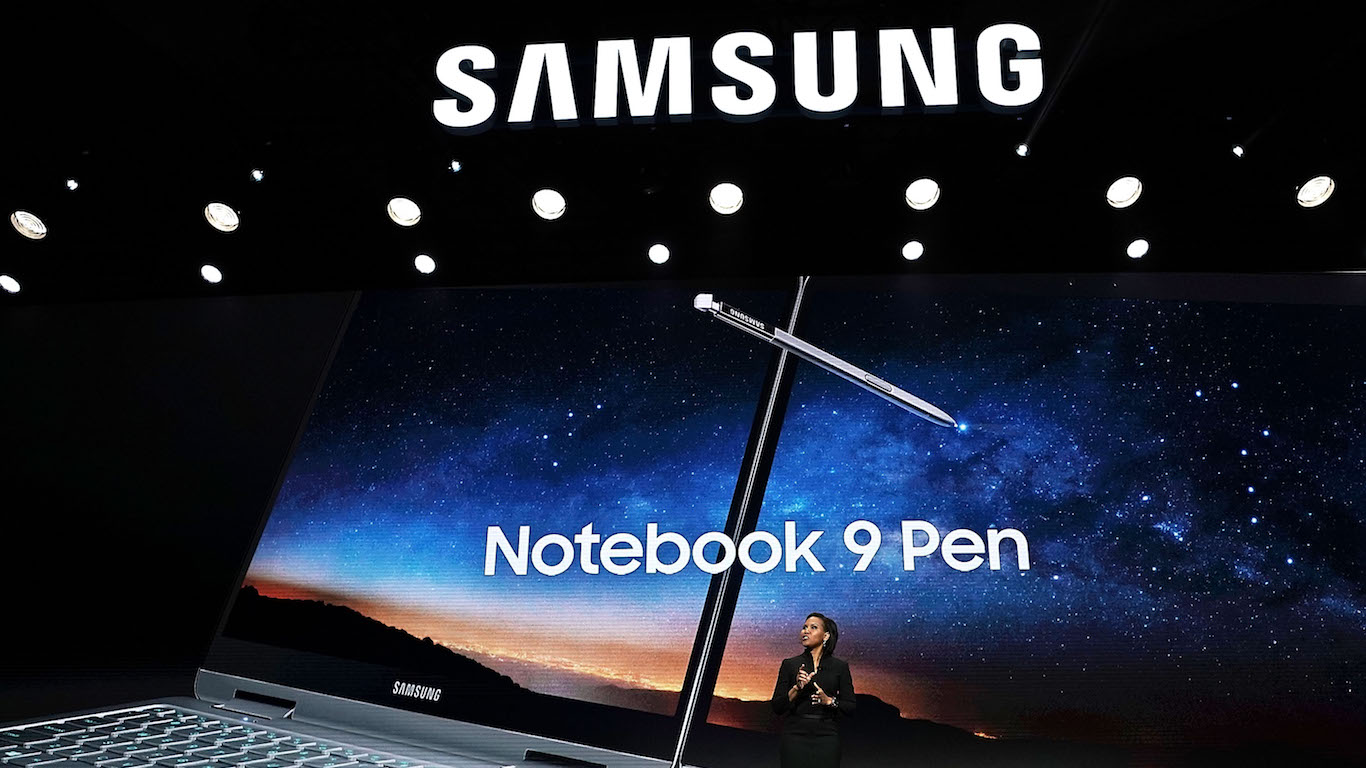
2. Samsung Group
> 2017 patent grants: 8,894
> 2016 patent grants: 8,470
> Country: South Korea
> Products: Mobile phones, televisions, home appliances
[in-text-ad-2]
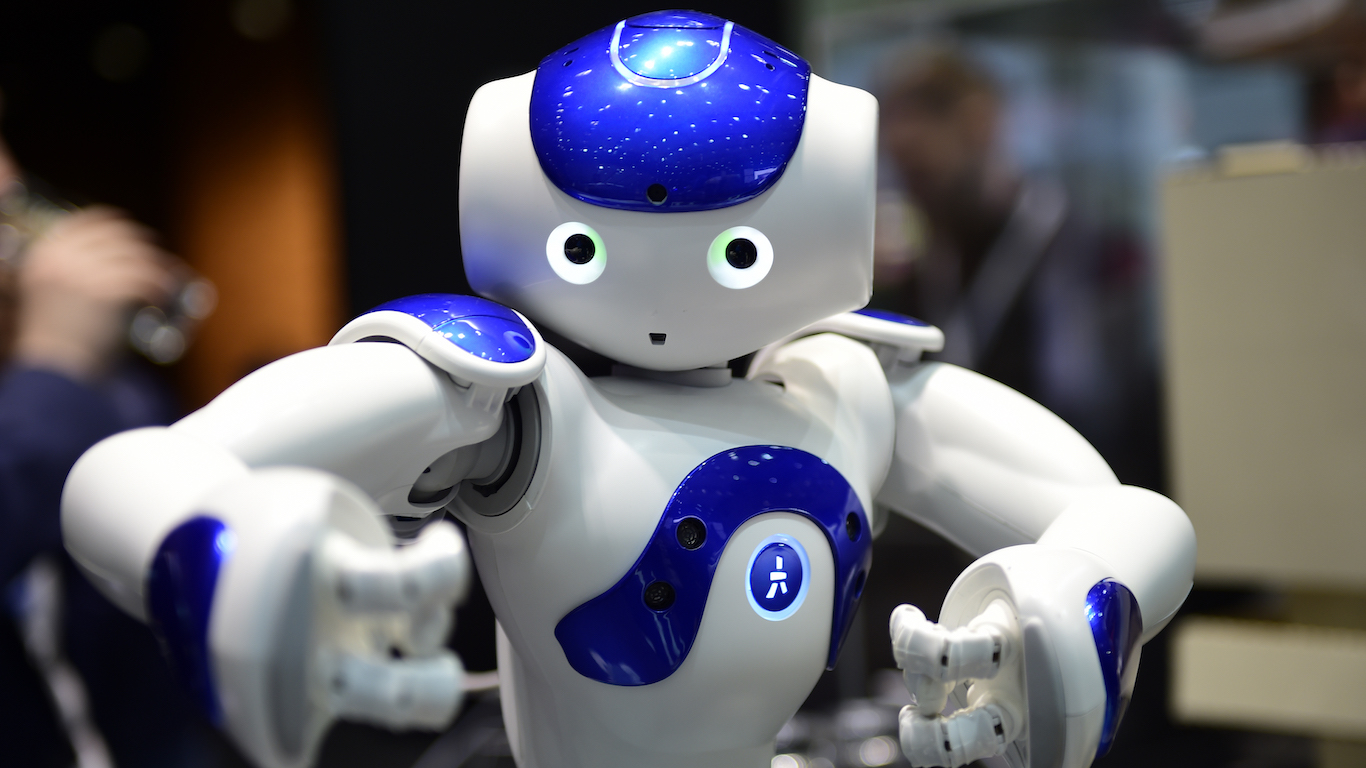
1. International Business Machines Corp.
> 2017 patent grants: 9,043
> 2016 patent grants: 8,090
> Country: United States
> Products: Data management, IT services, application development
Detailed Findings
Armonk, N.Y.-based IBM was the most innovative company in the world, taking back the top spot from Korean electronics behemoth Samsung. The U.S. Patent Office granted the information technology giant 9,043 patents last year, nearly triple the number of patents it received a decade ago.
In an interview with 24/7 Wall St., Larry Cady, a senior analyst with IFI Claims Patent Services, explained how and why a single company can be granted so many patents in a single year. When companies like IBM come up with an innovative product or concept, not only do they patent that specific product, but also they build a so-called “patent wall” around it. Cady used the hypothetical example of a company inventing a new kind of 3D printer. The company would “imagine all possible variations of that particular 3D printer and patent each one of them. So one patent on a 3D printer becomes 100 patents, and then those become 1,000 patents,” Cady said.
No matter the company or the industry, creating new concepts and products worthy of a patent is contingent on research and development. “Patents track very closely with corporate R&D spending,” Cady said.
How much a company allocates to R&D often can be dictated by factors outside of its control. In periods of economic stagnation, for example, companies may not have the resources to allocate to R&D, and innovation can slow as a result. Since it typically takes the Patent Office several years to issue a patent after it is submitted, there can be a lag.
To illustrate this point, Cady referenced the decline in U.S. patents from 2014 to 2015. “When we say that U.S. patents declined in 2015, that really means that patent applications and R&D declined in 2009 and 2010,” Cady said. The country was suffering from the worst effects of the Great Recession during those years. Steady economic growth in the United States suggests the patent grants will continue to climb for at least the next few years.
Growth in the total volume of patents does not tell the whole story. Trends also emerged within each industry and country. For example, though Chinese companies accounted for only 3.5% of all U.S. patents in 2017, the number of patents granted to Chinese companies was up 28% from the previous year.
The growth in patents granted to Chinese companies was driven by several factors. “[Chinese companies] are moving from being contract manufacturers to trying to do their own R&D,” Cady said. “They are also very serious about moving into the US market.” Chinese companies with the most U.S. patents include Huawei, a telecommunications company that was granted 1,616 patents last year, a 19.4% increase from the previous year.
The fastest growing technologies, as measured by patents grants in 2017, include machine learning, autonomous vehicles, and aerial drones. Companies that are driving much of that growth include IBM, which received 11.8% more patent grants in 2017 compared to the year before; Toyota, which received 30.3% more patents; and Boeing, which received 11.6% more patent grants.
Methodology
To identify the 50 most innovative companies, 24/7 Wall St. reviewed the 1,000 companies receiving the most patent grants U.S. Patent and Trademark Office grants in 2017, according to data provided by IFI Claims Patent Services. IFI produces this data based on the entity listed as holding the patent, and that entity often is a division or subsidiary of the larger company. In order to arrive at a figure that more closely reflects a company’s total, 24/7 Wall St. combined the grants awarded to a company and its subsidiaries. It is important to note that while IFI Claims Patent Services provided the data based on USPTO grants, 24/7 Wall St. aggregated the grants of multiple entities under the same parent corporation. This number is therefore an estimate as it excludes any patent-holding subsidiaries of a company that do not share the company’s name, and as it does not include companies outside of the top 1,000 patent grantees.
It’s Your Money, Your Future—Own It (sponsor)
Retirement can be daunting, but it doesn’t need to be.
Imagine having an expert in your corner to help you with your financial goals. Someone to help you determine if you’re ahead, behind, or right on track. With SmartAsset, that’s not just a dream—it’s reality. This free tool connects you with pre-screened financial advisors who work in your best interests. It’s quick, it’s easy, so take the leap today and start planning smarter!
Don’t waste another minute; get started right here and help your retirement dreams become a retirement reality.
Thank you for reading! Have some feedback for us?
Contact the 24/7 Wall St. editorial team.
 24/7 Wall St.
24/7 Wall St. 24/7 Wall St.
24/7 Wall St. 24/7 Wall St.
24/7 Wall St. 24/7 Wall St.
24/7 Wall St. 24/7 Wall St.
24/7 Wall St.
